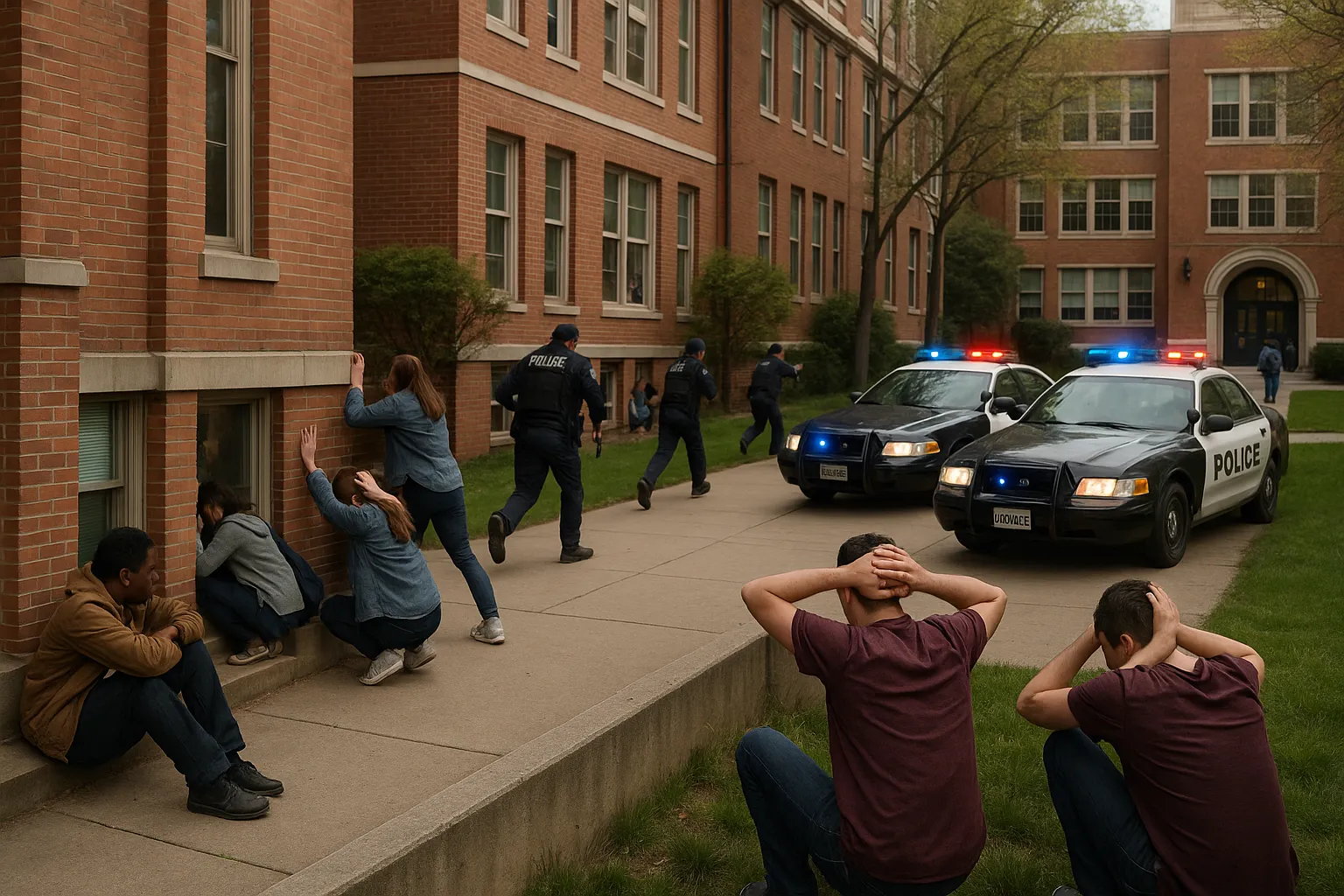Swatting Hoax Sparks Campuswide Panic at University of Arkansas

FAYETTEVILLE, Ark. - Hundreds of false reports of an active shooter swept across the University of Arkansas campus on Monday morning, August 25, 2025, forcing students and staff into lockdown and prompting a massive law enforcement response before authorities determined the incident to be a “swatting” hoax.
Shortly after 9:00 a.m., local 911 centers began receiving multiple calls claiming an armed individual was firing shots in several campus buildings. Within minutes, Fayetteville police, university officers, and Arkansas State Police converged on the university grounds, issuing a campuswide shelter-in-place order and temporarily closing Fayetteville Public Schools in the immediate vicinity as a precaution.
“I heard the alerts on my phone and saw classmates running down the hallway,” said sophomore engineering student Maria Castillo. “Everyone was terrified, not knowing if the threat was real or where it was coming from.” Classes were abruptly suspended, and exam schedules were disrupted as students hunkered down in classrooms, offices, and dormitories under strict lockdown protocols.
By 10:15 a.m., officers had conducted a systematic sweep of academic buildings, residence halls, and common areas, ultimately finding no evidence of gunfire or other criminal activity. Authorities then lifted the shelter-in-place order and began evacuating buildings in an orderly fashion. No injuries were reported.
Investigators believe the incident was a coordinated swatting call-an increasingly common prank in which perpetrators make false emergency reports to spur a heavy police response. Recent weeks have seen similar hoaxes at the University of Tennessee, Villanova University, the University of South Carolina, and Iowa State University, disrupting the start of the academic year at campuses nationwide and straining law enforcement resources.
“Although no credible threat was found, we treat every report with the utmost seriousness,” said Fayetteville Police Chief Liam Reynolds. “Swatting not only causes unnecessary panic but also diverts critical public safety assets away from real emergencies.”
University of Arkansas officials expressed relief that the event ended without harm and pledged to review emergency communication protocols. “Our priority is the safety and well-being of our students, faculty, and staff,” said Chancellor Tom Courtway. “We will work closely with law enforcement to bolster our defenses against these dangerous hoaxes.”
As the semester begins, campuses across the country remain on high alert for swatting calls that can trigger chaos, fear, and significant financial costs for emergency response-underscoring calls from legal experts for harsher penalties and improved tracing technologies to deter future incidents.
Categories
Autos and vehicles Beauty and fashion Business and finance Climate Entertainment Food and drink Games Health Hobbies and leisure Jobs and education Law and government Other Politics Science Shopping Sports Technology Travel and transportationRecent Posts
Tags
Archives
08/19/2025 (3) 08/20/2025 (40) 08/21/2025 (27) 08/22/2025 (22) 08/23/2025 (4) 08/24/2025 (21) 08/25/2025 (30) 08/26/2025 (24) 08/27/2025 (29) 08/28/2025 (16) 08/29/2025 (9) 08/30/2025 (13) 08/31/2025 (17) 09/01/2025 (167) 09/02/2025 (124) 09/03/2025 (149) 09/04/2025 (112) 09/05/2025 (72) 09/06/2025 (169) 09/07/2025 (162) 09/08/2025 (150) 09/09/2025 (176) 09/10/2025 (194) 09/11/2025 (194) 09/12/2025 (186) 09/13/2025 (207) 09/14/2025 (159) 09/15/2025 (175) 09/16/2025 (198) 09/17/2025 (196) 09/18/2025 (196) 09/19/2025 (207) 09/20/2025 (129) 09/21/2025 (4)